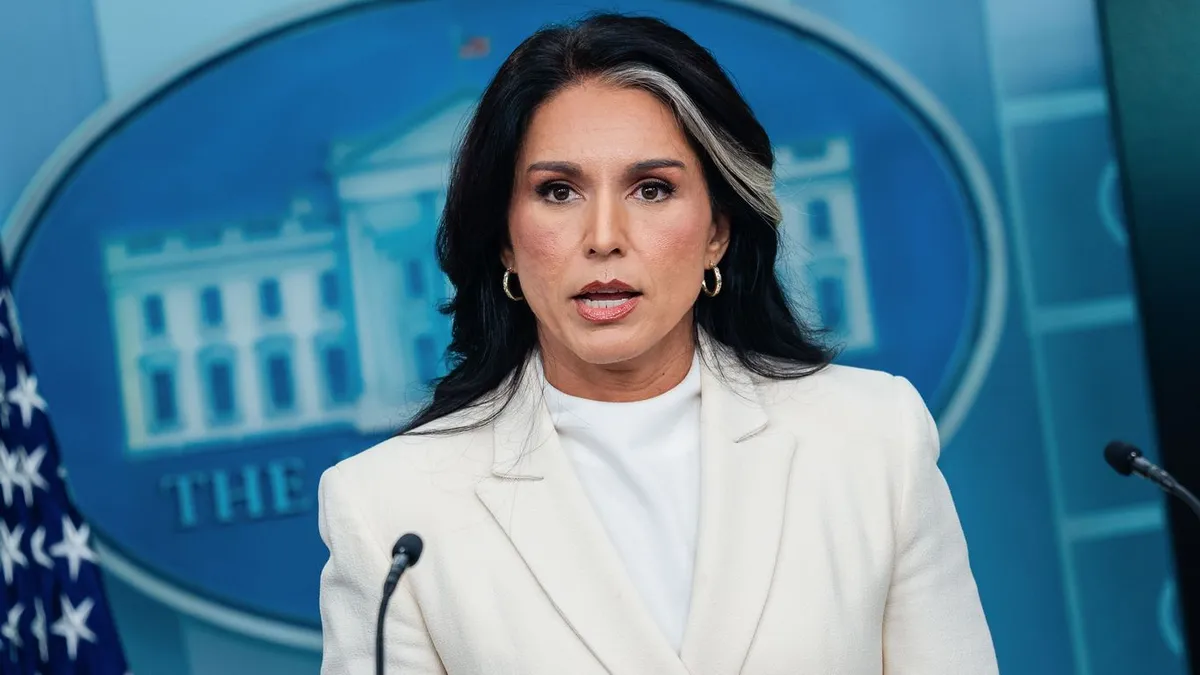
On Tuesday, the Trump administration made headlines by revoking the security clearances of 37 current and former officials. The administration accused these individuals of politicization and weaponization of intelligence to further personal, partisan, or non-objective agendas. This significant move has raised questions about the legality and implications of such actions.
In a controversial development, National Intelligence Director Tulsi Gabbard publicly released a memo identifying the officials targeted by this decision. Mark Zaid, a prominent lawyer representing intelligence officers, criticized the action, suggesting that it may have violated the law. Zaid is currently pursuing a lawsuit against the Trump administration to restore his own revoked security clearance.
In her post on X, Gabbard accused the officials of manipulating intelligence, leaking classified information without proper authorization, and committing serious violations of tradecraft standards. However, neither the memo nor Gabbard's social media post provided specific evidence to support these allegations.
The list of officials affected includes individuals who played pivotal roles in assessing Russia's interference in the 2016 election, as well as others who contributed to national security efforts under former Presidents Biden and Obama. Notably, some of these officials previously signed a letter endorsing the impeachment inquiry into President Trump regarding allegations of pressure on Ukraine.
In response to Gabbard's post, Mark Zaid expressed his concerns on X, stating, "Can you say 'Privacy Act violation'? I certainly can." He emphasized that the majority of the affected individuals are dedicated public servants who have served across multiple administrations. According to Zaid, information about security clearances is protected under the Privacy Act, and the government cannot disclose such information without the individual's consent or a specific Routine Use.
The Office of the Director of National Intelligence has not yet responded to inquiries from Axios regarding the matter, leaving many questions unanswered.
Far-right activist Laura Loomer recently highlighted that she had previously called for the revocation of security clearances for some of the officials named in Gabbard's memo. She expressed gratitude towards Gabbard for the action, stating, "Thank you, Tulsi! MORE SCALPS." One of the officials mentioned had worked under former National Intelligence Director James Clapper on an assessment confirming Russia's interference in the election that led to Trump's victory—an assessment that received bipartisan support.
This move by the Trump administration is not unprecedented. On his first day in office, Trump revoked the security clearances of 51 former intelligence officials who signed a letter in 2020 regarding Hunter Biden's laptop. In February, he also stripped former President Biden of access to classified information and daily intelligence briefings. Additionally, retired General Mark Milley, who had previously criticized Trump, saw his security clearance revoked.
The ongoing controversy surrounding the revocation of security clearances under the Trump administration raises significant concerns about the politicization of intelligence and the protection of civil servants. As developments unfold, the implications for national security and public trust in intelligence agencies remain critical topics for discussion.